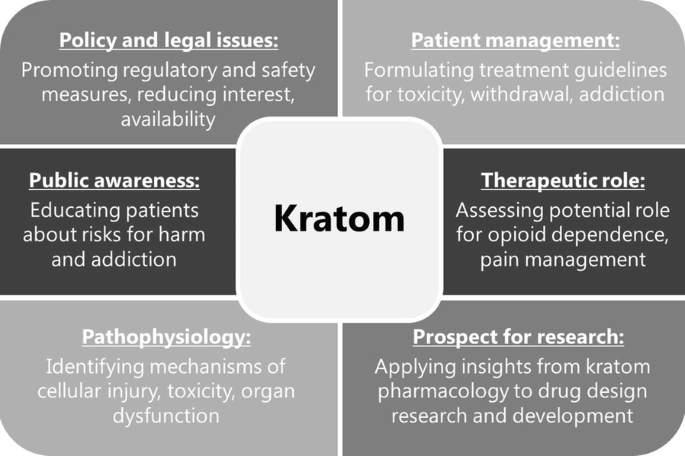If you’re curious about the legal status of kratom in Japan, you’ve come to the right place! In this detailed examination, we’ll dive into the fascinating world of kratom and explore its current legal situation in Japan. So, grab a cup of tea and get ready to learn all about it!
Kratom, a tropical tree native to Southeast Asia, has gained popularity in recent years for its potential therapeutic effects. From pain relief to boosting energy and mood, many people around the world are turning to this natural substance. However, when it comes to Japan, the legal landscape can be a bit tricky to navigate. In this article, we’ll explore the regulations surrounding kratom in Japan and shed light on what you need to know. So, let’s dive in and uncover the legal status of kratom in the Land of the Rising Sun!
The legal status of kratom in Japan is currently unclear. Kratom, a natural herb with psychoactive properties, is not specifically regulated under Japanese law. However, it is important to note that the import, export, and sale of kratom may be restricted or prohibited under other laws pertaining to controlled substances or medicinal products. As such, individuals interested in using or acquiring kratom in Japan should exercise caution and familiarize themselves with the relevant regulations.
Table of Contents
The Legal Status of Kratom in Japan: A Detailed Examination
Kratom, a tropical evergreen tree native to Southeast Asia, has gained popularity in recent years for its potential medicinal benefits. However, its legal status varies from country to country. In this article, we will delve into the legal status of kratom in Japan, providing a comprehensive analysis of its current regulatory framework.
The Current Legal Framework in Japan
In Japan, the legal status of kratom is quite complex. The country has strict regulations regarding the import, export, possession, and use of certain substances, including kratom. Under the Pharmaceutical Affairs Law, kratom is classified as a controlled substance and is prohibited for sale, import, and possession. This means that individuals caught with kratom may face legal consequences, including fines and imprisonment.
However, it is important to note that the legal status of kratom in Japan is not set in stone. In recent years, there has been a growing interest in exploring the potential therapeutic uses of kratom, leading to discussions about its legal status. Some proponents argue that kratom should be regulated and made available for medical purposes, while others believe it should remain strictly prohibited. As of now, no significant changes have been made to the existing regulations.
The Potential for Change
Despite the current strict regulations, there are indications that the legal status of kratom in Japan might evolve in the future. The growing body of research on kratom’s potential therapeutic benefits has sparked interest among researchers, policymakers, and medical professionals. This has led to calls for a reevaluation of the current regulations and a more nuanced approach to kratom.
One factor that could influence the potential change in the legal status of kratom is international developments. Countries such as the United States and several European nations have adopted more lenient approaches to kratom, recognizing its potential as an alternative to traditional opioids. These shifts in global attitudes towards kratom may impact the discussions surrounding its legal status in Japan.
The Importance of Regulation
Regardless of the potential changes in the legal status of kratom in Japan, regulation is crucial to ensure the safety and well-being of individuals who choose to use kratom. The lack of regulation can lead to the proliferation of low-quality or adulterated products, posing serious health risks to consumers. Therefore, if kratom were to be legalized or regulated for medical purposes in Japan, it would be essential to establish stringent quality control measures and guidelines for proper usage.
Moreover, education and awareness about kratom should accompany any potential changes in its legal status. Providing accurate information about its benefits, risks, and proper usage can help individuals make informed decisions and ensure responsible use. This can also help dispel misconceptions and address concerns that may arise from the legalization or regulation of kratom.
In summary, the legal status of kratom in Japan is currently classified as a controlled substance, making its sale, import, and possession illegal. However, discussions and debates surrounding its potential therapeutic benefits may influence future changes in its legal status. Regardless of the outcome, the importance of regulation and responsible usage cannot be overstated.
Frequently Asked Questions
Is Kratom legal in Japan?
Kratom is not legal in Japan. The Japanese government has classified kratom as a controlled substance, making its possession, sale, and use illegal. The import and export of kratom are also strictly prohibited. It is important to note that the legal status of kratom can vary from country to country, so it is always advisable to check the specific laws and regulations of the destination before traveling with kratom.
The Japanese government has banned kratom due to concerns about its potential for abuse and addiction. Additionally, there have been reports of adverse effects and health risks associated with kratom use. The government’s decision to classify kratom as a controlled substance reflects their commitment to public health and safety.
What are the penalties for possessing kratom in Japan?
Possessing kratom in Japan is a serious offense, and those found in possession of the substance can face severe penalties. The exact penalties can vary depending on the quantity of kratom and the circumstances of the case, but they can include fines, imprisonment, or both.
The Japanese authorities take the illegal possession of controlled substances very seriously and have implemented strict measures to discourage their use. It is important to respect and abide by the laws of the country to avoid any legal issues or consequences.
Can I bring kratom to Japan for personal use?
No, it is not legal to bring kratom to Japan for personal use. The import of kratom is strictly prohibited by the Japanese government. Attempting to bring kratom into the country can result in confiscation of the substance, as well as potential legal consequences.
If you are traveling to Japan, it is important to familiarize yourself with the country’s laws and regulations regarding controlled substances. This includes researching the legal status of any substances you may be considering bringing with you, such as kratom.
Are there any legal alternatives to kratom in Japan?
While kratom is illegal in Japan, there may be legal alternatives available for those seeking similar effects. It is important to note that the use of any substances should always be done responsibly and in accordance with the law.
Consulting with a healthcare professional or exploring alternative natural remedies may be a safer and legal option for those looking for similar benefits to kratom. It is always recommended to research and understand the potential risks and benefits of any substances before using them.
What should I do if I have kratom in Japan?
If you currently have kratom in Japan, it is important to dispose of it properly and refrain from using or distributing it. Possessing or using kratom in Japan is against the law and can result in severe penalties.
If you are unsure of how to properly dispose of kratom, it is recommended to consult with local authorities or seek guidance from a healthcare professional. It is essential to prioritize your safety and adhere to the laws and regulations of the country you are in.
Final Thoughts on the Legal Status of Kratom in Japan
After a detailed examination of the legal status of kratom in Japan, it is clear that the regulatory landscape surrounding this botanical substance is complex and evolving. While kratom is not explicitly classified as a controlled substance in Japan, its import, sale, and possession are heavily restricted. The government has taken a cautious approach towards kratom due to concerns over its potential health risks and abuse potential.
It is important for individuals in Japan to be aware of the legal implications before considering the use or purchase of kratom. As with any substance, it is crucial to stay informed about the current laws and regulations to avoid any legal repercussions.
It is essential for individuals to exercise caution and abide by the existing laws to avoid any legal issues. As the understanding of kratom continues to evolve, it is possible that the legal status may change in the future. Until then, it is advisable to stay informed and make responsible choices regarding the use of kratom in Japan.








Hey there Dick thanks for letting us know if the mistake and being so kind.
We appreciate your love and respect for others and how you live by the golden rule.